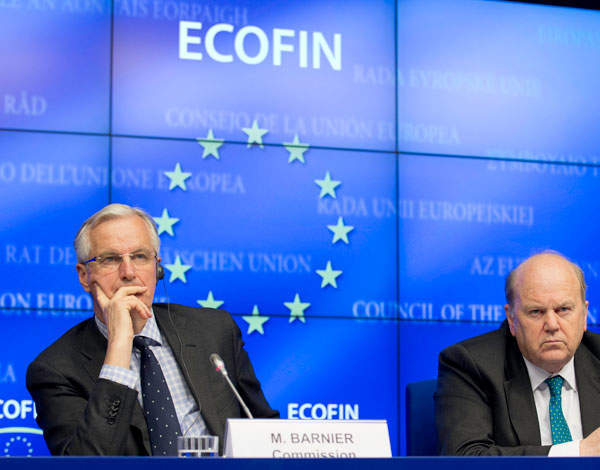

Nothing can ruin your Saturday morning more than receiving a letter from your foreign bank demanding that you report the account that you hold with them to the UK government. This may become a reality following the ECOFIN meeting of EU finance ministers on 14 October 2014 when they agreed to extend the scope of the automatic exchange of information between tax authorities with effect from 2017.
In response to the new OECD Global Standard of automatic exchange of information which was agreed by G20 Finance Ministers in early 2013, the EU Commission proposed a revision to the Administrative Cooperation Directive 2011/16/EU in June 2013.
The directive came into force in January 2013 and sets out the details to be specified in requests for information on taxpayers and prevents requests from being refused on grounds of bank secrecy. It provides for the automatic exchange of available information from 1 January 2015 on the following categories of income:
• income from employment;
• director’s fees;
• life insurance products;
• pensions and;
• immoveable property (together the ‘existing categories’).
The proposed revision to the directive agreed by the EU finance ministers on 14 October 2014 extends the scope of the directive and aims to secure the widest possible automatic exchange of information between all member states.
The revised directive will include the following new items which are paid, secured or held by a financial institution for the direct or indirect benefit of a beneficial owner who is a natural person resident in a different EU member state to that of the relevant financial institution:
• dividends;
• capital gains;
• any other income generated with respect to the assets held in a financial account;
• any amount with respect to which the financial institution is the obligor or debtor, including any redemption payments; and
• account balances.
Under the original directive, information on the existing categories of income was only subject to automatic exchange where such information was ‘available’. However, under the revised directive, automatic exchange of information will be mandatory for the new items listed above.
Consequently, from 2017 onwards, member state tax authorities will automatically exchange information with each other on most categories of income and capital held by private individuals and certain entities. Austria will be given until 2018 to comply with the new rules unless it can apply the rules earlier. The Commission is now considering the repeal of the EU Savings Directive which provides for a more limited form of exchange of information within the EU.
The aim of the revised directive is to ensure that the scope of automatic exchange of information between EU member states is as wide as the information exchange required under the US Foreign Account Tax Compliance Act (commonly known as FATCA).
Pier Carlo Padoan, minister of economy and finance of Italy and president of the Council recently said: ‘The EU is still at the forefront of the fight against cross-border tax fraud and evasion, for the benefit of all citizens.’
Even individuals with minimal income from rental property or shareholdings abroad could be caught by the new directive. However, it will only be once the directive first takes effect from 1 January 2015 that we will see how the tax authorities deal in practice with the avalanche of paperwork. It could be many years before it results in increased tax revenue for the EU.
But one thing is certain – there is no place left to hide.






